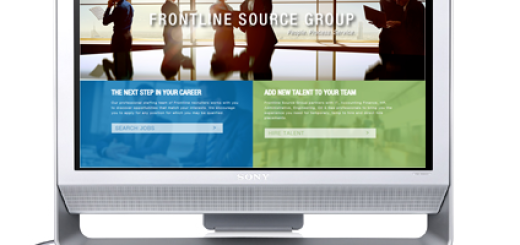Navigating CEO Challenges When Hiring in Texas
The Texas job market is a dynamic and multifaceted landscape that reflects the state’s diverse economy and robust growth trajectory. With a population exceeding 29 million, Texas boasts a labor force that is not only large but also varied, encompassing a wide range of industries from technology and healthcare to energy and agriculture. The state’s economic resilience has been bolstered by its favorable business climate, characterized by no state income tax, a relatively low cost of living, and a pro-business regulatory environment.
This combination has attracted a plethora of companies, both domestic and international, seeking to establish or expand their operations in the Lone Star State. As a result, Texas has become a magnet for job seekers, with cities like Austin, Dallas, and Houston emerging as vibrant hubs of employment opportunities. However, understanding the Texas job market requires more than just recognizing its size and growth.
It is essential to delve into the specific sectors that are driving employment trends and shaping the workforce. For instance, the technology sector in Austin has seen exponential growth, fueled by a burgeoning startup culture and the presence of major tech companies. Meanwhile, Houston remains a powerhouse in the energy sector, particularly in oil and gas, while Dallas has carved out a niche in finance and telecommunications.
Additionally, the healthcare industry is experiencing significant expansion across the state, driven by an aging population and advancements in medical technology. By comprehensively analyzing these trends, employers can better position themselves to attract talent that aligns with their organizational needs.
Key Takeaways
- The Texas job market is diverse and dynamic, with opportunities in various industries and sectors.
- Navigating legal and regulatory considerations is crucial for businesses operating in Texas, as the state has its own set of employment laws and regulations.
- Addressing cultural differences in the workplace is important for creating an inclusive and productive work environment in Texas, which has a rich and diverse population.
- Overcoming talent acquisition challenges in Texas requires a strategic approach, including leveraging local networks and understanding the unique talent landscape.
- Developing competitive compensation packages is essential for attracting and retaining top talent in the competitive Texas job market.
- Building a strong employer brand in Texas can help businesses stand out and attract top talent in a crowded job market.
- Retaining top talent in the Texas market requires a focus on employee engagement, career development, and creating a positive work culture.
Navigating Legal and Regulatory Considerations
When operating within the Texas job market, it is imperative for employers to navigate the complex web of legal and regulatory considerations that govern employment practices. Texas labor laws encompass a range of issues, including wage and hour regulations, workplace safety standards, and anti-discrimination policies. Employers must be vigilant in ensuring compliance with both federal and state laws to mitigate the risk of legal disputes and potential penalties.
For instance, understanding the nuances of the Fair Labor Standards Act (FLSA) is crucial for determining employee classifications and ensuring proper compensation practices. Additionally, Texas has its own set of regulations regarding workers’ compensation and unemployment insurance that employers must adhere to in order to maintain compliance. Moreover, the regulatory landscape in Texas is continually evolving, necessitating that employers stay informed about changes that may impact their operations.
Recent legislative developments have introduced new requirements related to employee leave policies, workplace safety protocols, and data privacy regulations. Employers must also be aware of local ordinances that may impose additional obligations beyond state law. For example, cities like Austin have enacted measures aimed at enhancing employee protections, such as paid sick leave mandates.
By proactively addressing these legal considerations, employers can foster a compliant workplace culture while minimizing exposure to potential liabilities.
Addressing Cultural Differences in the Workplace
Texas is renowned for its rich cultural tapestry, which is reflected in its diverse workforce. As employers seek to build inclusive teams, it is essential to recognize and address the cultural differences that may influence workplace dynamics. The state’s population includes individuals from various ethnic backgrounds, languages, and traditions, each contributing unique perspectives and experiences.
Embracing this diversity can enhance creativity and innovation within organizations; however, it also requires a commitment to fostering an inclusive environment where all employees feel valued and respected. Employers should prioritize cultural competency training for their staff to promote understanding and collaboration among team members from different backgrounds. In addition to ethnic diversity, Texas is home to a wide array of regional cultures that can impact workplace interactions.
For instance, the business etiquette in Houston may differ significantly from that in Austin or Dallas. Understanding these regional nuances is crucial for effective communication and relationship-building within teams. Employers should encourage open dialogue about cultural differences and create platforms for employees to share their experiences and insights.
By cultivating an environment that celebrates diversity while promoting mutual respect, organizations can harness the strengths of their varied workforce to drive success.
Overcoming Talent Acquisition Challenges
| Challenges | Solutions |
|---|---|
| High competition for top talent | Implement employer branding strategies to attract top candidates |
| Long hiring process | Streamline the recruitment process and use technology for efficiency |
| Skills gap in the workforce | Offer training and development programs to upskill existing employees |
| Passive candidates not actively seeking jobs | Utilize networking and social media to reach passive candidates |
In a competitive job market like Texas, attracting top talent presents its own set of challenges for employers. The demand for skilled professionals often outpaces supply, particularly in high-growth sectors such as technology and healthcare. As companies vie for the same pool of candidates, it becomes imperative to implement strategic talent acquisition practices that differentiate them from competitors.
This may involve leveraging innovative recruitment techniques such as employer branding initiatives, targeted outreach efforts, and enhanced candidate experiences throughout the hiring process. By showcasing their unique value propositions and organizational culture, employers can effectively capture the attention of prospective employees. Moreover, employers must also consider the evolving expectations of job seekers in today’s market.
Candidates are increasingly prioritizing factors such as work-life balance, career development opportunities, and corporate social responsibility when evaluating potential employers. To address these preferences, organizations should adopt a holistic approach to talent acquisition that emphasizes not only competitive compensation but also meaningful engagement with candidates throughout the recruitment journey. By aligning their hiring strategies with the values and aspirations of today’s workforce, employers can enhance their ability to attract and retain top talent in Texas.
Developing Competitive Compensation Packages
In order to thrive in the competitive Texas job market, organizations must develop compensation packages that not only attract talent but also retain it over time. A comprehensive compensation strategy goes beyond base salary; it encompasses various elements such as bonuses, benefits, retirement plans, and non-monetary perks that contribute to an employee’s overall satisfaction. Employers should conduct thorough market research to benchmark their compensation offerings against industry standards and ensure they remain competitive within their respective sectors.
This analysis should take into account factors such as geographic location, skill level, and experience to create tailored packages that resonate with potential hires. Additionally, transparency in compensation practices can foster trust and loyalty among employees. Organizations should communicate clearly about how compensation decisions are made and provide opportunities for employees to discuss their career progression and salary expectations openly.
Implementing performance-based incentives can also motivate employees to excel while reinforcing a culture of accountability within the organization. By prioritizing competitive compensation packages that align with employee needs and expectations, employers can cultivate a motivated workforce that drives organizational success.
Building a Strong Employer Brand in Texas
A strong employer brand is essential for attracting top talent in Texas’s competitive job market. An organization’s reputation as an employer significantly influences candidates’ perceptions and decisions when considering job opportunities. To build an effective employer brand, companies must articulate their mission, values, and culture clearly while showcasing what sets them apart from competitors.
This can be achieved through various channels such as social media platforms, company websites, and employee testimonials that highlight positive workplace experiences. By creating an authentic narrative around their brand identity, organizations can resonate with potential candidates who share similar values. Furthermore, engaging current employees as brand ambassadors can amplify an organization’s employer brand presence in the market.
Encouraging employees to share their experiences on professional networking sites like LinkedIn or participating in community events can enhance visibility while fostering a sense of pride among staff members. Additionally, organizations should actively seek feedback from employees regarding their experiences within the company to identify areas for improvement and reinforce positive aspects of the workplace culture. By investing in employer branding initiatives that reflect genuine employee experiences and organizational values, companies can position themselves as desirable workplaces in Texas.
Retaining Top Talent in the Texas Market
Retaining top talent is a critical challenge for organizations operating in Texas’s competitive job market. High turnover rates can be detrimental not only to productivity but also to employee morale and organizational culture. To mitigate this issue, employers must prioritize employee engagement strategies that foster a sense of belonging and commitment among staff members.
Regular check-ins with employees through performance reviews or informal conversations can help identify areas where individuals may feel undervalued or disengaged. By actively listening to employee feedback and addressing concerns promptly, organizations can create an environment where employees feel supported and motivated to contribute their best efforts. Moreover, offering opportunities for professional development is essential for retaining top talent in Texas’s evolving job market.
Employees are increasingly seeking roles that provide avenues for growth and advancement within their organizations. Employers should invest in training programs, mentorship initiatives, and career development resources that empower employees to enhance their skills and pursue their career aspirations. Additionally, recognizing and rewarding employee achievements through recognition programs or promotions can reinforce loyalty while motivating individuals to remain committed to their organization’s success.
By cultivating a culture of continuous learning and recognition, employers can effectively retain top talent amidst the competitive landscape of Texas’s job market.
For CEOs navigating the complexities of hiring in Texas, understanding the interplay between people, processes, and service is crucial. A related article that delves into this topic is presented by Bill Kasko, President and CEO of Frontline Source Group. In his presentation titled “People, Process, Service: Defining a Winning Formula for Business and Life,” Kasko explores how these elements combine to shape successful business strategies, particularly in the recruitment and staffing industry. This insight is particularly valuable for CEOs looking to enhance their hiring strategies and overcome challenges in the Texas job market. You can read more about his insights and strategies in the full article here.
FAQs
What are some of the challenges that CEOs face when hiring in Texas?
Some of the challenges that CEOs face when hiring in Texas include finding qualified candidates in a competitive job market, navigating the state’s unique employment laws and regulations, and addressing the need for diversity and inclusion in the workforce.
How does the competitive job market in Texas impact CEOs when hiring?
The competitive job market in Texas can make it difficult for CEOs to attract and retain top talent, as candidates may have multiple job offers to consider. This can lead to increased competition for skilled workers and higher salary demands.
What are some of the unique employment laws and regulations in Texas that CEOs need to navigate when hiring?
Texas has its own set of employment laws and regulations, including at-will employment, workers’ compensation requirements, and specific rules regarding employee breaks and overtime pay. CEOs need to ensure compliance with these laws when hiring and managing their workforce.
How do CEOs address the need for diversity and inclusion in the workforce when hiring in Texas?
CEOs in Texas are increasingly focused on promoting diversity and inclusion in the workplace. This may involve implementing diversity initiatives, creating inclusive hiring practices, and fostering a culture of belonging within the organization.







